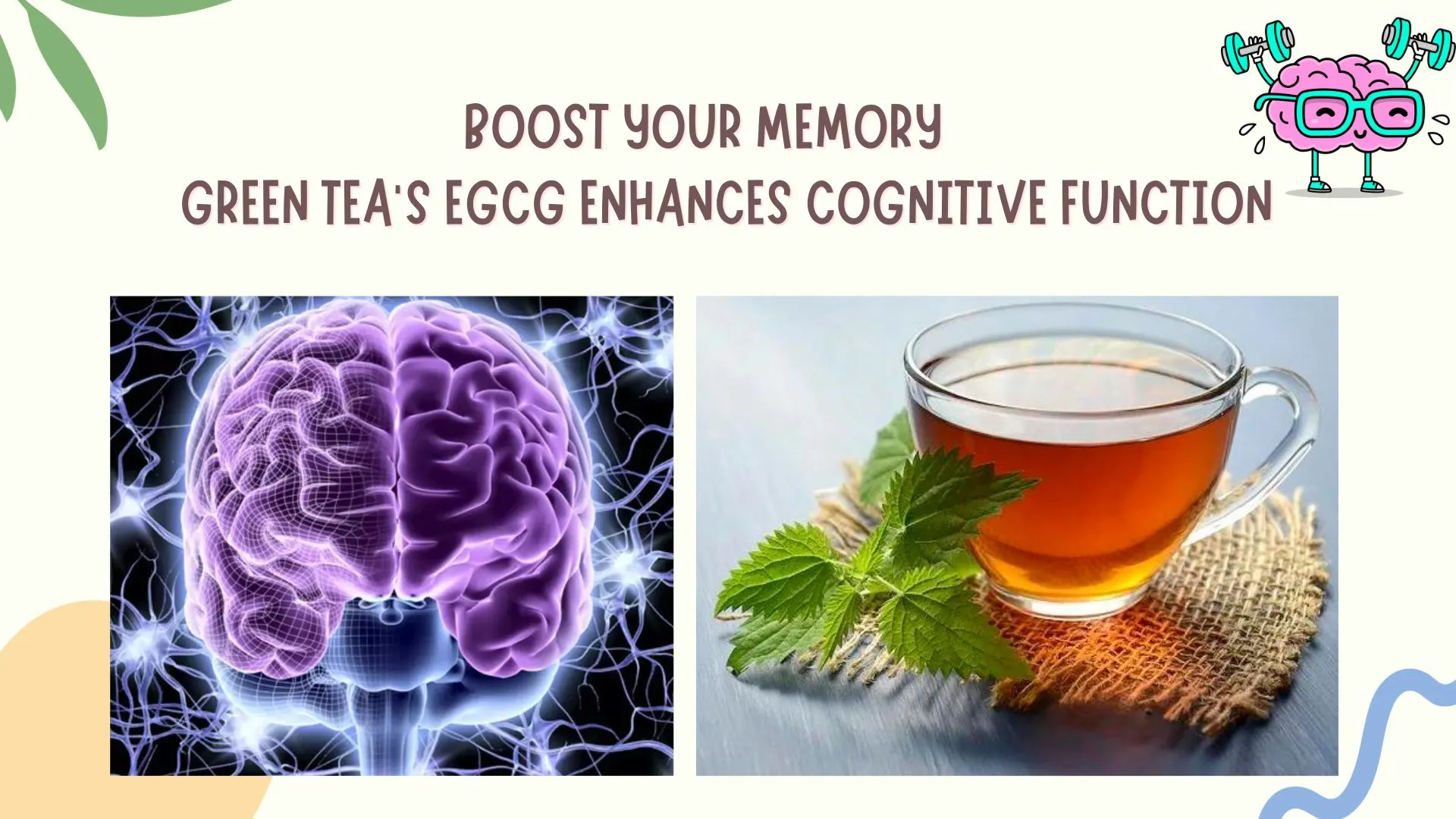Green Tea and Memory Enhancement
For a long time, the positive impact of green tea on memory has been widely acknowledged. A recent study delves into the chemical properties of China’s favourite drink and elucidates how these properties contribute to the generation of brain cells, offering tangible benefits for memory and spatial learning. The findings have been published in Molecular Nutrition & Food Research.

EGCG: Unveiling the Key Organic Compound
Central to the study is epigallocatechin-3 gallate (EGCG), a crucial organic chemical found in green tea. While known for its antioxidant properties, researchers hypothesized that EGCG could also exert a positive influence against age-related degenerative diseases. Their focus was on exploring how EGCG might enhance cognitive function by impacting the generation of neuron cells—a phenomenon referred to as neurogenesis. The specific target of their investigation was the hippocampus, the brain region responsible for processing information from short-term to long-term memory.
Neurogenesis Boost: The Role of EGCG
The research team discovered that EGCG plays a pivotal role in boosting the production of neural progenitor cells, akin to stem cells, which can adapt and differentiate into various cell types. This key discovery prompted the team to conduct further experiments using laboratory mice to assess whether the increased cell production translated into advantages in memory and spatial learning.
Read More: The Tea Advantage: A Tooth-Friendly Sip for Healthier Smiles – Know More (kmore.info)
Mice Trials: Unveiling the Cognitive Benefits
In their experiments, the researchers divided the mice into two groups—one that had consumed EGCG and a control group. The mice underwent training to find both visible and hidden platforms in a maze. The results revealed that the EGCG-treated mice demonstrated a notable advantage, requiring less time to locate the hidden platform. Overall, the findings pointed to EGCG’s capacity to enhance learning and memory, particularly in terms of object recognition and spatial memory.
Conclusion: EGCG’s Direct Impact on Neural Progenitor Cells
The study’s conclusion emphasized that EGCG acts directly to augment the production of neural progenitor cells. This was evidenced not only in controlled laboratory tests but also through observations in live mice. The research sheds light on the potential cognitive benefits of green tea consumption, providing insights into the underlying mechanisms at play.
Journal Link: https://onlinelibrary.wiley.com/doi/10.1002/mnfr.201200035
FAQs
What is EGCG?
Epigallocatechin gallate, abbreviated as EGCG, is a plant-derived compound belonging to the catechin group. Catechins, in turn, fall under the broader category of plant compounds called polyphenols.
